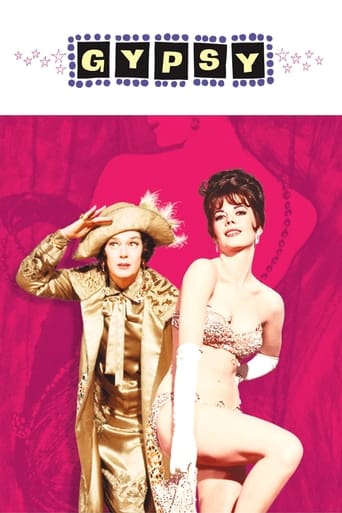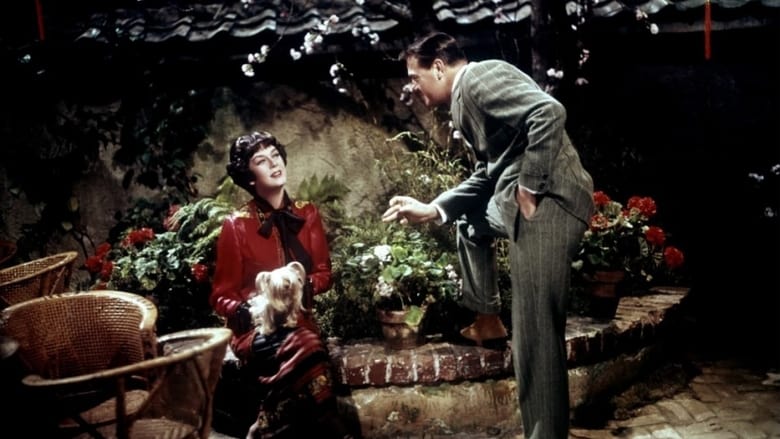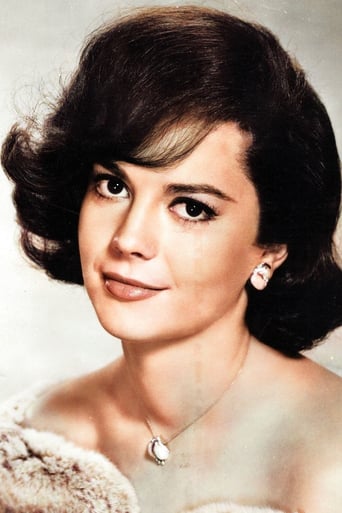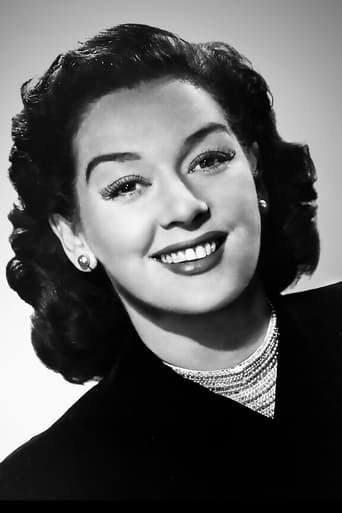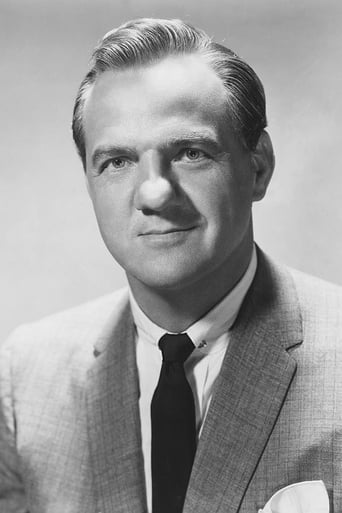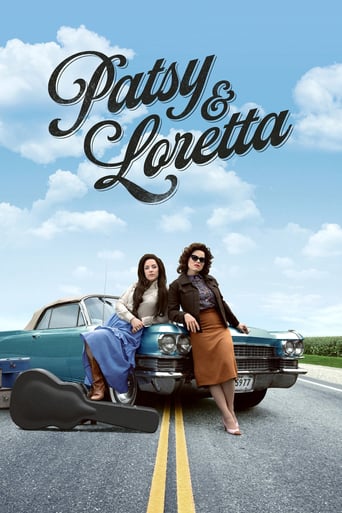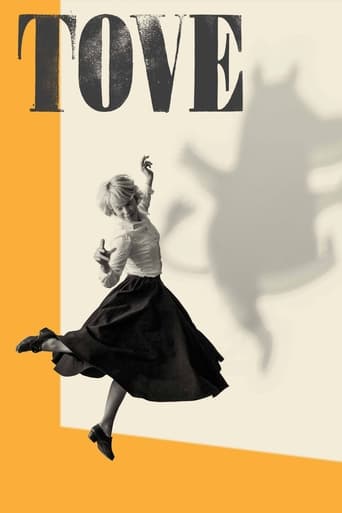Gypsy (1962)
Mama Rose lives to see her daughter June succeed on Broadway by way of vaudeville. When June marries and leaves, Rose turns her hope and attention to her elder, less obviously talented, daughter Louise. However, having her headlining as a stripper at Minsky's Burlesque is not what she initially has in mind.
Watch Trailer
Cast


Similar titles
Reviews
What a great piece of film making. Some critics have called Gypsy the greatest musical ever produced, and I think I see why they say so. I've never seen a staged performance so I can't compare, but I don't see how this movie version could be any better than it is. Everything is at the highest level - casting, script, acting, direction, cinematography. The story is gripping, as one watches how a driven, obsessed, controlling woman warps the lives of those around her. Evidently Ethel Merman was furious that Russell was chosen for the part Merman created on Broadway, but Russell's performance is powerful. Karl Malden is just great as poor Herbie. Natalie Wood is flawless as Jean. The moment near the end when she looks at herself in the mirror before going onstage for her stripping debut, and suddenly recognizes her own femininity ("I'm a pretty girl, mama") is heartbreaking. The script never lets up on the dramatic tension, and the cinematography - in beautiful, extinct Technicolor - is a feast for the eyes. Evidently Russell couldn't sing and had to be dubbed. I've heard that Merman kept the outtakes of Russell's singing as a vicious memento (I'd kill to hear them). At any rate this is one of the all time greats, not to be missed.
The mother of all stage mothers, Rose Hovick has been documented so much on stage and film, in addition to the original novel, that the woman who wanted so much to be the star would probably be thrilled to know that after death, she's not only a star, but a legend! When your life is originated by Ethel Merman, played on screen by Rosalind Russell AND Bette Midler (with rumors of a remake still rampant with someone named Streisand...), and such legends as Angela Lansbury, Tyne Daly, Linda Lavin, Bernadette Peters and Patti LuPone taking on the role on Broadway (with three of them winning Tony's), as well as stock productions with Dolores Gray, Betty Hutton, Karen Morrow, Joanne Worley, Kaye Ballard, Leslie Uggams, among others, you've made it. The 1962 movie with Rosalind Russell isn't perfect, but it is certainly worthy of the acclaim its gotten, even if detractors are rampant and determined to smear it on behalf of the individual lady who they prefer as the mother of both June Havoc and Gypsy Rose Lee.O.K., so Merman screamed so loud upon hearing Roz got the role that glass might have broken somewhere, and like others who lost their stage role to another actress on film, she may never have seen the movie. Still, as disappointing to purists (such as myself) who would have liked to have seen Merman do the part, Russell makes it her own, at least for the 2 1/2 hours that the movie runs, and she got the Golden Globe for the role, like Merman had gotten for the movie version of "Call Me Madam" almost a decade before."Sing Out Louse!" With those words, Rose Hovick makes her entrance, and this is the key that unlocks the door to the personality of this brassy woman who dominated her daughter's lives in her efforts to get them on stage and into the Orpheum Circuit. Russell never lets up on the brass, and you totally forget that you're watching the glamorous Auntie Mame as she eats the role up alive. Her Rose obviously loves her children, but she loves success and the spotlight probably just as much if not more. She isn't the belter of Merman's style, and it is very probable that most of her singing was dubbed. Listening to cast albums with Lisa Kirk (particularly "Mack and Mabel") makes it even likelier that it was she who did the work, and in keeping with Roz's speaking voice, it is difficult to tell the difference.Replacing Jack Klugman from the original cast is the very similar Karl Malden, and his Herbie is a totally likable man whom you know both Louise and June would have loved to have seen as a stepfather. The softness of Russell's Rose comes out in her singing of "Small World", and their playful relationship is also evident in "You'll Never Get Away From Me". Seeing outtakes of the second act opener, "Together Wherever We Go" makes it obvious as to why it was cut, although the idea of seeing it re-shot with altered lyrics makes for a better idea.As for Natalie Wood, coming off her triumph in "West Side Story" (also dubbed) made her the obvious star to take on Louise/Gypsy, and she goes from shy "other sister" to super-star stripper with building confidence. At times, Natalie (as she often did) would "bray" her lines, including her key line, "I thought you did it for me, mama!", a factor in her receiving more "Razzy" awards than any other actress of her era. She is very good here, however, and when she takes on "Let Me Entertain You!" after going through the first half of the film pretending to be a cow, gives evidence of the confidence instilled into her by director Mervyn LeRoy who knew a little something about how to transfer stage shows into movies.But Malden and Wood are totally forgotten when Roz breaks into "Rose's Turn", perhaps the greatest eleven o'clock number in musical history, and one where a breakdown is not always successfully perceived as happening. Roz briefly collapses inside, but this woman is too driven to allow her anguish to take over, and this is the shining star in her performance. I can't say who the greatest Mama Rose is, but in judging this movie, Roz does great justice to the part, and other than someone like Judy Garland, it is difficult to guess who could have eaten this role up as much as Roz did. Years later, when Bette Midler did the role for T.V., she brought her own light into the part, and gave new dimensions that other actresses might not have seen. The two Broadway Rose's whom I have seen (Bernadette and Patti) gave entirely different connotations of the role which shows how fascinating this part is for study and why so many actresses who reach a certain age are anxious to dip (Just Dip!) into it.The Jule Styne and Stephen Sondheim songs are energetically performed, including the magnetic "You've Got to Have a Gimmick" where Louise is shown by three very different strippers how to cajole her audience into taking her into their hearts, even if the men are not quite looking at her heart. Each actress who plays Rose or Louise has their own gimmick, and that is what makes this show fascinating.
Based on Broadway musical, Rose Hovick (Rosalind Russell) is a stage mom from hell. Her daughter Louise (Natalie Wood) is a shy dutiful wallflower. Her younger daughter June is the bubbly blonde star of the show. Herbie Sommers (Karl Malden) becomes their manager who is ever hopeful to marry Rose. When June finally runs off to get marry at 13, Rose refuses to settle down and sets Louise up as the new star. They end up broke and stranded at a burlesque show. At first Rose refuses to let her daughter to lower herself to burlesque. However when she's faced with settling down with Herbie, she jumps at the chance to push her daughter on the road to becoming big burlesque star Gypsy Rose.I find most of the songs are very Broadway. Rosalind Russell's singing is dubbed, and the result is unsatisfying. Of course, the big song is 'Everything's Coming Up Roses'.Rose is a tough character to take. I guess that's the point. The start with the daughters as little girls is sometimes fun. However the middle is a little extended. This is probably where the long running time of 143 minutes could have been trimmed. When they get to the burlesque, the movie gets dramatic and good. However the ending is a little bit abrupt and too happy. The story seems to be begging for a more powerful outburst from Louise to finally break off with her mother.
Rose Hovick is a mother to two young girls: June and Louise. Rose is determined to get her girls into the footlights of the theater, and tries to drive her daughters toward success, much to the consternation of her long-suffering beau, Herbie Sommers, a candy salesman, who wants to settle down with Rose and live a happy family life. However, Herbie tries to assist Rose as best as he can, while Rose continues to ignore his marriage proposals. Tired of all the attention, June, who Rose pushes the hardest, elopes with one the chorus boys in the act Rose has put together. Hurt at first, Rose then works on Louise, the less-talented of the girls. With vaudeville dying, they unknowingly book a job into a burlesque house. Through a succession of events, Louise then becomes the world famous burlesque artist Gypsy Rose Lee. Jealous of the attention Louise is getting, Rose becomes more pushy and interfering, and argues with Louise, who demands that Rose leaves her life forever. Left alone, Rose finally realizes what she has done, and reconciles with Louise.This excellent film should be used as an example of how to rework a stage musical for the screen while retaining what worked in the original. Director Mervyn LeRoy clearly loved this musical, and working with cinematographer Harry Stradling, stages the scenes as though they are being performed on a stage, giving it a theatrical and cinematic look at the same time. The performances are broad enough without being too overdone for a film production. Rosalind Russell gives a fine performance as Rose, one of the greatest roles ever written for a musical (she was dubbed in this film by Lisa Kirk, who matches Russell's speaking voice quite well). Russell gives Rose a toughness and a vulnerability that works well. Natalie Wood is excellent as Louise, and sings well here (she was dubbed for WEST SIDE STORY). Her dressing-room confrontation with Russell at the end is a powerful piece of acting. Karl Malden, whose role is usually overshadowed in stage productions of this piece, gives a performance equal of Russell's, and does everything to make himself stand out. The screenplay by Leonard Spielglass is extremely faithful to Arthur Laurents' original stage libretto, with only minor changes here and there (one song was shortened, and one was cut, which can be seen on the DVD). Those iconic songs by Jule Styne and Stephen Sondheim are given the grand treatment by the Warner Bros. Orchestra. Fun entertainment. RECOMMENDED. 10/10.

